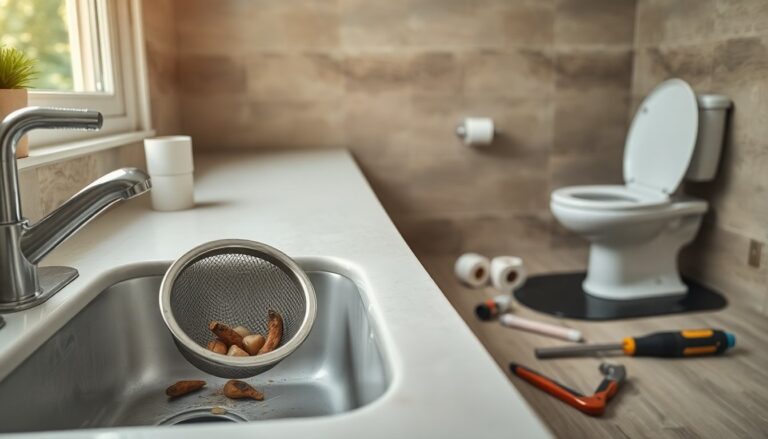Argomenti trattati
Daily plumbing functions often go unnoticed, yet certain habits can lead to significant plumbing issues. These issues may result in costly repairs and disruptions. This article examines common behaviors that can inadvertently harm your home’s plumbing infrastructure.
The impact of improper waste disposal
Improper waste disposal significantly contributes to plumbing problems. Many individuals flush items that should never enter the toilet. Instead of breaking down, these materials can create blockages in pipes. It is essential to remember that toilets are designed for waste and toilet paper only.
Understanding the consequences
Flushing inappropriate items such as wipes, hair, or cotton swabs increases the likelihood of clogs. These materials do not decompose easily and can result in severe blockages within plumbing systems. Over time, these blockages can intensify, leading to more extensive and expensive repairs.
Neglecting regular maintenance
Lack of regular plumbing maintenance is another common mistake. Many homeowners underestimate the importance of routine inspections and upkeep. Like any other aspect of a home, plumbing systems require attention for optimal performance.
The importance of early detection
Neglecting to check for leaks or signs of wear can allow minor issues to escalate into major problems. Regular maintenance aids in identifying potential issues early, saving homeowners from significant expenses later. For instance, an unattended small leak in a pipe can result in water damage and the necessity for extensive repairs.
Ignoring signs of plumbing issues
Many homeowners overlook warning signs indicating plumbing problems. A slow drain or a minor drip from a faucet may appear trivial, yet these symptoms can signify more significant issues beneath the surface. Ignoring these signs can lead to severe damage and costly repairs.
Listening to your plumbing system
Plumbing systems often communicate through unusual noises, slow draining, or fluctuating water pressure. Observing these signals can help address issues before they worsen. For example, gurgling sounds during sink use may indicate a blockage in the drain line requiring immediate attention.
Overloading your disposal systems
Overloading garbage disposals is another frequent cause of plumbing issues. While designed for food waste, disposals have limits. Disposing of large quantities of food simultaneously can lead to jams and malfunctions.
Best practices for disposal use
To avoid problems, feed your disposal small amounts of waste gradually. Additionally, refrain from placing fibrous materials such as celery or potato peels in the disposal, as they can cause clogs. Be cautious with hard items that may damage blades.
Using chemical drain cleaners
Many individuals resort to chemical drain cleaners as a quick solution for clogs. However, these products can often cause more harm than good. While they may offer temporary relief, harsh chemicals can damage pipes over time, leading to leaks and other complications.
Choosing safer alternatives
Improper waste disposal significantly contributes to plumbing problems. Many individuals flush items that should never enter the toilet. Instead of breaking down, these materials can create blockages in pipes. It is essential to remember that toilets are designed for waste and toilet paper only.0

